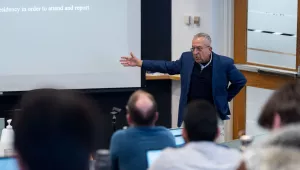American, European, and African diplomatic intervention has finally brokered a peace agreement regarding Darfur, the Sudan's war-wracked western region. If the agreement is fully implemented and sustained at least over the coming months and years, Africa’s latest genocidal inter-communal combat will have been halted—but only after the loss of more than 200,000 civilian lives and the displacement of about 2 million villagers.
The report was written in April 2006, just before the happy conclusion of the long running Darfurian negotiations in Abuja, Nigeria. It explains why implementation of the agreement will neither be automatic nor easy, and why renewed hostilities and more mayhem are as likely now as they were during the bitter last three years.
The report also explains how the problems in Darfur mirror similar problems elsewhere in the Sudan, indicating which critical provisions of the 2005 Comprehensive Peace Agreement (ending the North-South conflict after twenty-three years) have not yet been satisfied, and what else still needs to be done if renewed North-South hostilities are to be avoided. The distribution of petroleum revenues depends, for example, on border demarcations that will be contested. There is a census to be taken, and potential for a resumed war on the Sudan's eastern front.
If the Sudan can transform itself over the next few years from an Islamist autocracy at war with its own peoples into a stable, tolerant proto-democracy, then economic development and rising standards of living will follow. This sobering but forward-looking report shows what will have to be done, and what also will have to be overcome.
West, Debbie. “The Sudan: Saving Lives, Sustaining Peace.” Program on Intrastate Conflict, Belfer Center,





